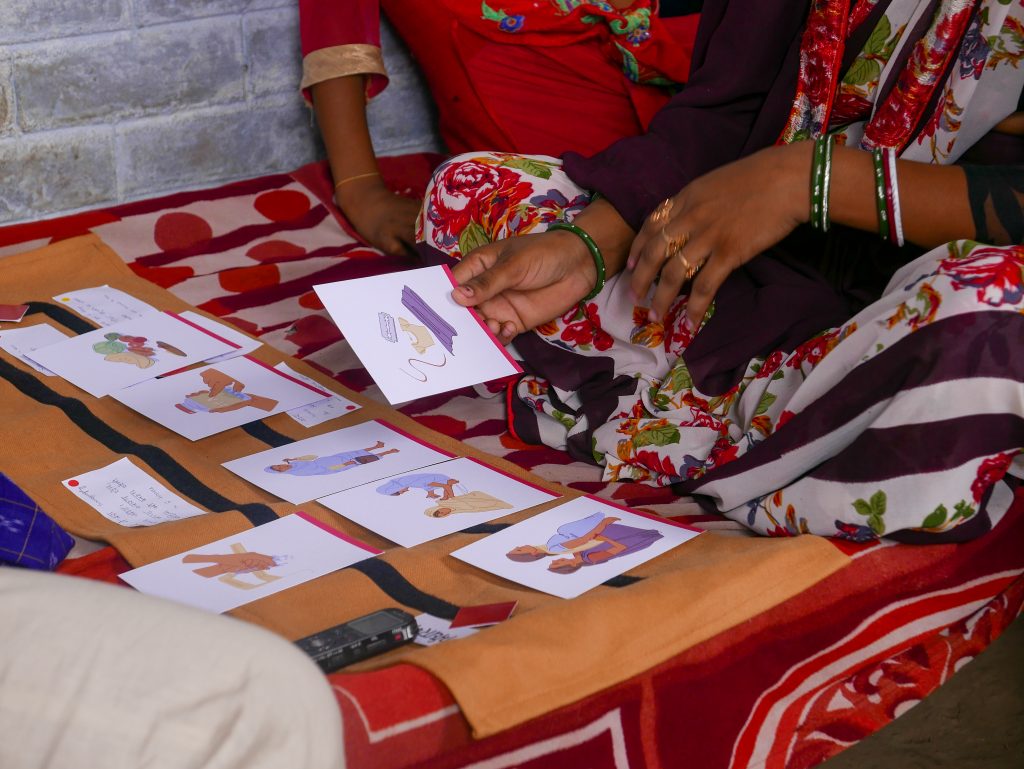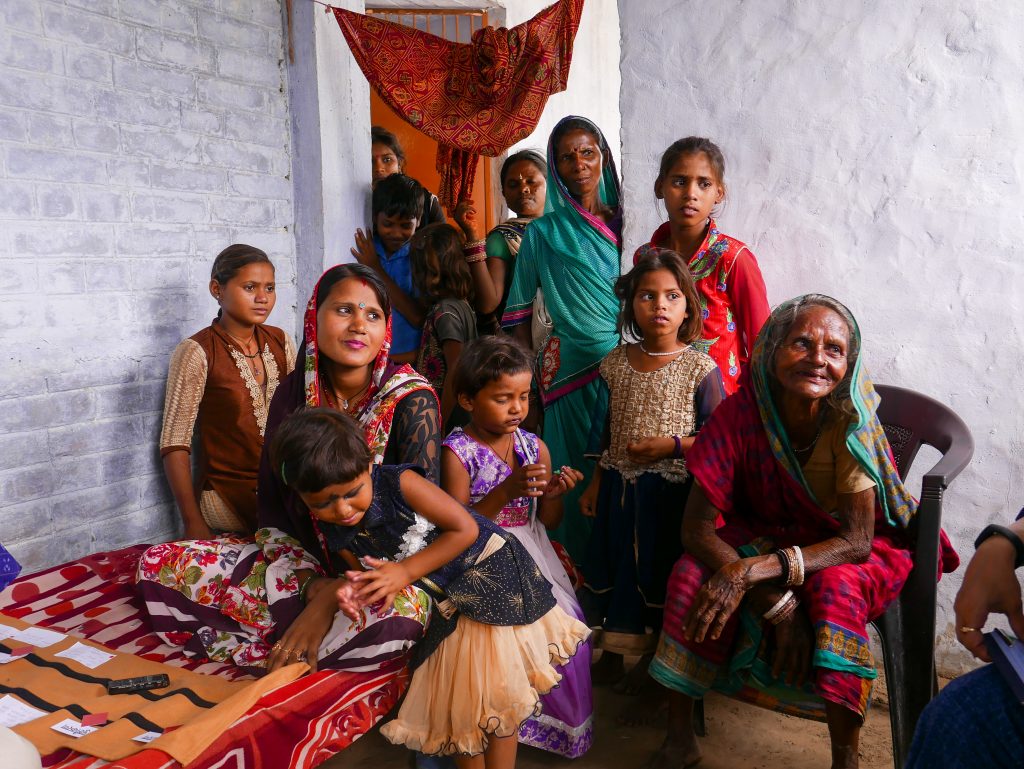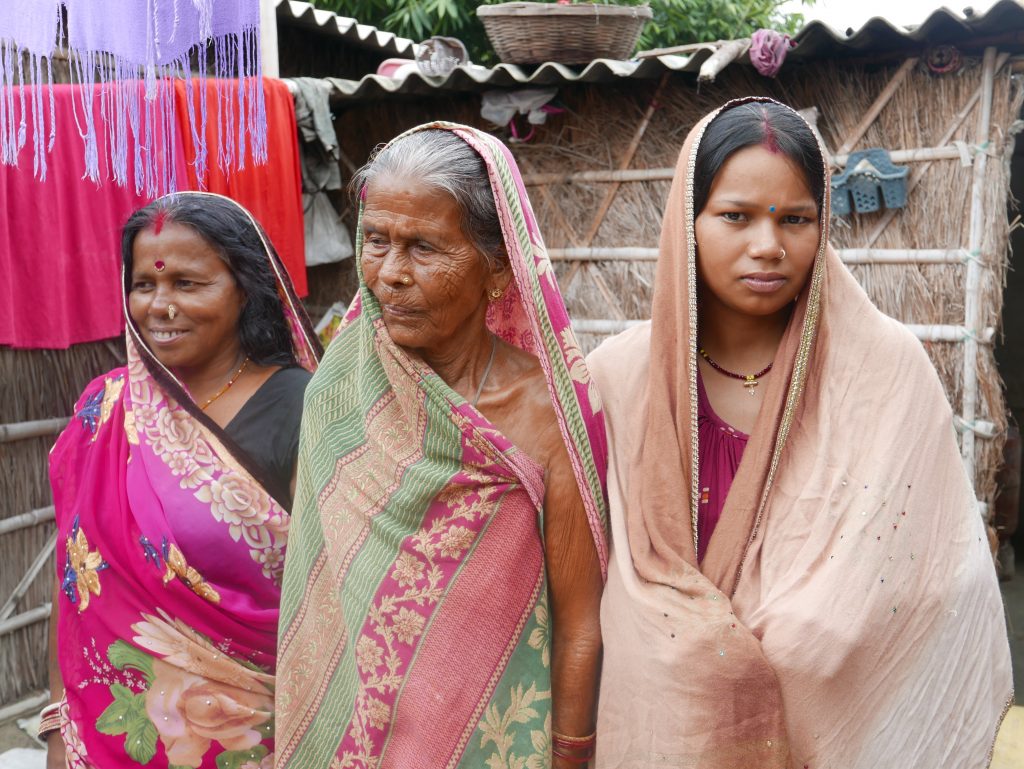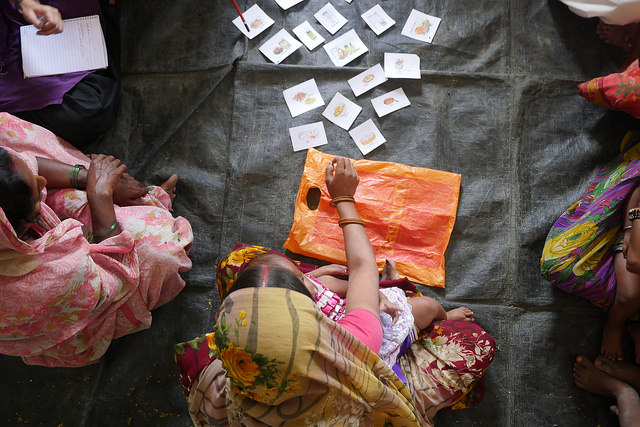RISE
All societies use rituals to coordinate collective action, promote well-being, and evoke reinforcing mechanisms that ensure their continued practice. Project RISE (Ritual to Improve Service-delivery and Empower health workers) leveraged rituals to reinforce the frontline health worker role as community influencers and behaviour change agents. The project, delivered in collaboration with the University of Texas at Austin (UTA), Project Concern India (PCI), and Centre for Social and Behaviour Change at Ashoka University, also aimed to improve the quality of service delivery in perinatal care in Bihar, India.
RISE focused on rituals as they can act as a gateway to lasting behaviour change. Behaviours are embedded in community norms, values, and motivations that interact in complex ways. Scientific reasoning and incentives can influence some behaviours, but seldom those deeply entrenched in cultural practices that are often codified in rituals. Rituals provide a framework to influence deeply entrenched behaviours together with target communities to create effective interventions.
The RISE project research, led by Dr Cristine Legare from UTA, sought to understand rituals, motivations, and social dynamics surrounding health service delivery among the ASHA (Accredited Social Health Activist) frontline health workers. Scope supported the research through the co-design of solution concepts together with ASHAs, ASHA supervisors, Anganwadi child care workers, and community members that addressed the psychological, social, and cultural roots of barriers hindering effective service delivery.
Project approach
RISE took a unique approach by integrating social science research with human-centred design strategies. This interdisciplinary mixed-methods approach informed the design of more effective service delivery and behavioural outcomes.
The three project phases – Discover, Define, and Create – spanned over three years from 2018 to 2021.

The Discovery phase engaged with over 2,000 participants for qualitative and quantitative research activities, including surveys, ethnographic inquiries, focus group discussions, key informant interviews, and behavioural vignettes. This phase interacted with the key target groups of ASHAs and recent mothers while also capturing the perceptions of various actors influencing health behaviours, such as mother-in-laws, midwives, priests, and rural medical practitioners to capture insights.
The Define phase mapped opportunity areas and design drivers based on the synthesised Discovery research findings. The key areas and drivers were determined through a series of remote and in-person workshops involving project partners and experts from the RISE Advisory Board. They systematically reviewed the project data to create a strategy with prioritised themes and drivers for change to guide the next project phase.
The Create phase used the research insights, design drivers, and existing behaviour change frameworks to create a novel approach to leverage rituals in behaviour change interventions. The ritualisation framework formed the basis for co-designing 10 solution concepts focused on improving the motivation and ability of ASHAs to act as behaviour change agents in their communities. The project also developed WhatsApp-based methods to engage and co-design remotely with the ASHAs and other stakeholders during the COVID-19 pandemic.
Project outcomes
For RISE, Scope developed the Ritualisation Framework – with 10 linked, ASHA-specific solution concepts – to influence ritual practice and enhance the acceptance, adaptation, and sustenance of recommended behaviours. The three-step framework provides an alternative pathway to achieving behaviour change compared to the existing behaviour change intervention approaches. It can be used for research when trying to understand rituals and ritualistic behaviours as well as for generating ideas to influence them.
The framework can help design or improve existing behaviour change interventions by aligning interventions with community motivations, generating family and community level buy-in, and creating reinforcing mechanisms. At the same time, the model ensures that interventions are informed by and leverage the cultural context surrounding the targeted behaviour. We are currently working with external partners to test the ritualisation framework outside of the scope of the RISE project.
Read more about RISE on the Center for Applied Cognitive Science’s website.



